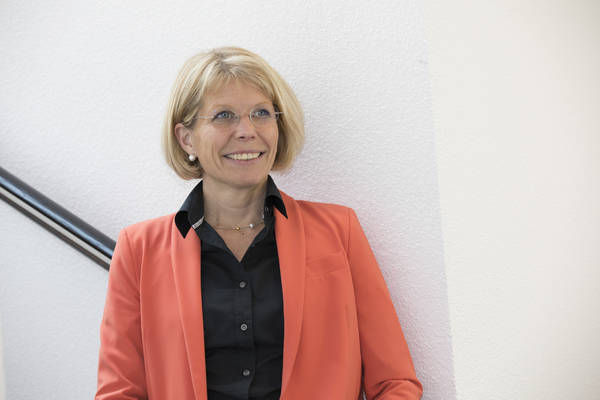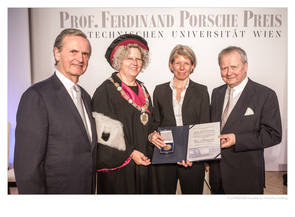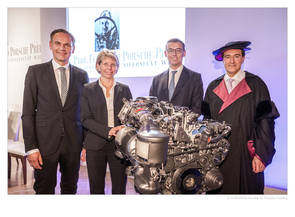The Porsche Prize of the TU Wien honors special achievements in automotive technology. This time, it was awarded for an engine concept from Daimler AG that reduces nitrogen emissions extremely effectively.
The limits are becoming stricter and stricter, but despite this, nitrogen oxide pollution in the air is not decreasing at a sufficient rate. Diesel engines in particular still produce large amounts of nitrogen oxides. One promising approach to takle this is a new type of engine with directly connected exhaust gas aftertreatment developed by Anke Kleinschmit and her team at Daimler AG. For this, she has now been awarded the Ferdinand Porsche Prize of the TU Wien, which is awarded every two years for outstanding achievements in automotive engineering.
New engine concept
“Harmful nitrogen oxides are the crucial issue today when it comes to passenger car diesel engines,” says Prof. Bernhard Geringer, head of the Institute for Powertrains and Automotive Technology at TU Wien. Step by step, emissions legislation has been tightened over the years, culminating in today’s Euro 6 emissions standard, but it is much more difficult to reduce nitrogen oxide emissions with diesel engines than with gasoline engines. “Unfortunately, to this day, the real NOx emissions of diesel vehicles in normal driving are often above the specified legal limits from the test cycles,” says Geringer.
But that is now set to change: Daimler AG has developed a new four-cylinder diesel engine concept that features a highly effective exhaust gas aftertreatment module. This significantly undercuts the currently applicable exhaust gas limits. “What is particularly convincing is that the low NOx values have been reproducibly measured not only under the specific conditions of a standardized driving cycle test, but also in everyday traffic practice by independent testers,” emphasizes Bernhard Geringer. “This makes the diesel just as clean as a gasoline engine in terms of nitrogen oxide emissions – with significant advantages in terms of CO2 emissions at the same time.” The new engine concept was first introduced in the new E-Class from Mercedes-Benz in 2016.
Ferdinand Porsche Prize
For the development of this new engine concept, Anke Kleinschmit was awarded the Ferdinand Porsche Prize by the TU Wien on May 19, 2017. Kleinschmit studied precision engineering and mechatronics at the University of Applied Sciences in Ulm and then began her career at Daimler AG in Stuttgart. Today, she is head of the directorate “Group Research and Sustainability” as well as an environmental officer.
The prize was presented by TU Rector Sabine Seidler, together with Dr. Wolfgang Porsche, Chairman of the Supervisory Board of Porsche AG, and Dr. Hans Michel Piëch, Member of the Supervisory Board of Porsche AG. The prize, which is endowed with 50,000 euros, was already awarded for the 20th time. It was donated in 1976 by Louise Piëch, the daughter of Ferdinand Porsche, and has been awarded every two years since 1977 by the TU Wien. It is one of the most highly endowed awards for pioneering research and development work in the field of automotive engineering. The prize money is shared equally by Porsche Holding, Salzburg, and Dr. Ing. h.c. F. Porsche AG, Stuttgart.


